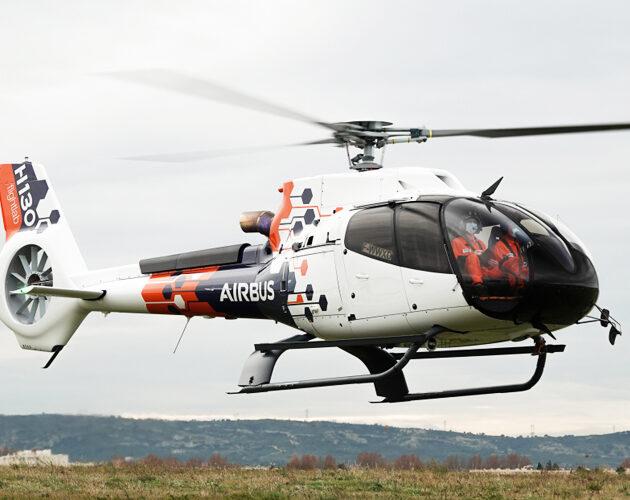In a groundbreaking step towards autonomous air transport, Airbus has unveiled its latest innovation: a helicopter capable of carrying out cargo missions without the need for a pilot. This revolutionary aircraft is set to redefine the future of air logistics, offering a glimpse into the possibilities of fully automated aerial transportation. Join us as we delve into the details of Airbus’s testing of this cutting-edge technology and explore the potential impacts of a pilotless, all-cargo aircraft on the aviation industry.
The Future of Air Cargo: Airbus Takes a Leap with Autonomous Helicopter
Airbus is revolutionizing the air cargo industry with its latest test of an autonomous helicopter designed for cargo transportation. This groundbreaking venture eliminates the need for pilots, paving the way for a future where cargo can be efficiently and safely transported by unmanned aircraft.
In a recent demonstration, the autonomous helicopter successfully loaded and unloaded cargo without human intervention, showcasing its potential to streamline logistics operations. With advancements in autonomous technology, Airbus is taking a leap towards a more efficient and cost-effective air cargo system that is not restricted by traditional pilot limitations. The future of air cargo is here, and Airbus is leading the way with innovative solutions that prioritize efficiency and safety.
Revolutionizing Logistics: Advantages of Pilotless Cargo Transport
The future of cargo transport is here, as Airbus pushes the boundaries with the testing of an autonomous helicopter designed to revolutionize logistics. With no pilots on board, this pilotless cargo transport system offers numerous advantages for the industry. Here are some of the key benefits:
Cost-effective: By eliminating the need for human pilots, companies can save on labor costs, training, and insurance expenses.Efficient: Autonomous helicopters can operate 24/7, without the need for breaks or rest periods, ensuring swift and timely deliveries.Reliable: With advanced AI technology and sensors, these pilotless cargo transports can navigate through various weather conditions and terrains with precision.
With the successful loading tests of the autonomous helicopter, Airbus is paving the way for a new era in cargo transport. This groundbreaking innovation opens up a world of possibilities for businesses looking to streamline their logistics operations and stay ahead in a fast-paced global market.
Safety First: Ensuring Security and Reliability in Autonomous Aircraft Operations
At Airbus, the future of aviation is looking more autonomous than ever. In a recent groundbreaking test, the company successfully loaded cargo onto an autonomous helicopter, showcasing the potential of pilotless operations. This milestone marks a significant step forward in ensuring the security and reliability of autonomous aircraft operations.
The test demonstrated the seamless integration of advanced technologies in autonomous systems, underscoring Airbus’ commitment to safety first. With innovative solutions and rigorous testing, Airbus is paving the way for a new era in air transportation. As the industry evolves, the focus on security and reliability remains paramount, driving advancements in autonomous aircraft operations.
Preparing for Takeoff: Key Considerations for Implementing Autonomous Cargo Technology
As autonomous technology continues to revolutionize the way we transport goods, Airbus has taken a significant step forward by testing the loading of an autonomous helicopter with cargo. This trial run marks a major milestone in the development of autonomous cargo technology, showcasing the potential for unmanned aircraft to deliver goods safely and efficiently.
With the successful loading of cargo onto the autonomous helicopter, Airbus is paving the way for a future where unmanned vehicles play a crucial role in the logistics industry. By eliminating the need for pilots and focusing solely on transporting cargo, these autonomous vehicles have the potential to streamline operations, reduce costs, and enhance overall efficiency. As companies continue to explore the possibilities of autonomous cargo technology, key considerations such as safety, regulations, and integration into existing infrastructure will be essential for successful implementation.
Closing Remarks
As the aviation industry continues to push the boundaries of innovation, the concept of autonomous cargo helicopters may soon become a reality. Airbus’ successful tests in loading and unloading cargo without the need for a pilot have opened up a world of possibilities for the future of air transportation. With the potential for increased efficiency and reduced operating costs, could we soon see a sky filled with unmanned cargo helicopters navigating the skies? Only time will tell. But one thing is for certain – the future of aviation is looking more autonomous than ever before. Watch this space for more updates on this exciting development in the world of aviation.


